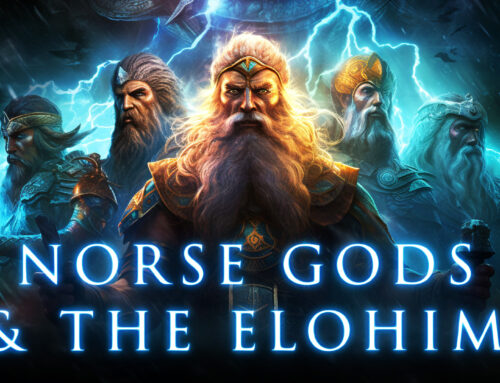The Genesis creation story is widely known, but a closer look reveals intriguing complexities that invite fresh interpretations. This exploration delves into the creation of humanity, the roles of God and the serpent, and the deeper themes of knowledge, power, and human evolution that emerge from the narrative…
Humanity’s Creation and the Garden of Eden:

In Genesis, God forms the first human, Adam, from the earth, breathing life into him. Adam is placed in the Garden of Eden, not just to enjoy it, but to serve as its caretaker. Though surrounded by creation, Adam remains alone until God observes that he needs a companion. After forming animals and birds, God determines that none are suitable partners for Adam. Only then does God create a woman from part of Adam’s side, leading Adam to declare her “bone of my bones, flesh of my flesh.”
The Creation of Woman: A Secondary Thought?
One curious element in this account is the timing of the woman’s creation. Some translations suggest a sequence in which her creation appears delayed. This has led some to ask: Could an all-knowing Creator not foresee the need for both male and female from the start? This invites reflection on ancient narratives, where early beings are often depicted as non-reproductive prototypes—engineered but not fully capable of reproducing. This notion echoes stories from various cultures, where the creation of female counterparts represents a critical step in humanity’s progression.

The Temptation and the Tree of Knowledge
The story reaches a turning point with the Tree of Knowledge of Good and Evil. God warns Adam and Eve not to eat its fruit, cautioning that doing so will bring death. The serpent, described as the most cunning of creatures, questions this command, suggesting instead that the fruit will open their eyes and make them “like God.” Tempted by the promise of wisdom, Eve eats the fruit and shares it with Adam. Their eyes are opened, and they become aware of their nakedness, hastily covering themselves.

The Consequences of Knowledge
God, upon discovering their disobedience, declares consequences for each. The serpent is cursed to be at odds with humanity, Eve is told that childbirth will come with great pain, and Adam is condemned to a life of toil, laboring on cursed ground. As a final act, God removes them from Eden, ensuring they no longer have access to the Tree of Life, which would grant them immortality.
Reinterpretation: The Serpent as an Advocate of Progress?
Traditionally, the serpent has been seen as the villain, leading humanity into sin. Yet another reading suggests that the serpent may be encouraging Adam and Eve to evolve, pushing them toward self-awareness and knowledge. From this viewpoint, the serpent is not merely tempting them but offering a path to growth, awakening their moral consciousness.
This shift in interpretation also alters our understanding of God’s role. Rather than simply protecting Adam and Eve, God’s actions could be seen as limiting their potential, possibly out of concern that they might become “like one of us”—a phrase that suggests a plurality among divine beings. This raises the question of whether God is acting alone or as part of a collective of powerful entities. The tension between granting knowledge and maintaining control becomes a central theme, inviting readers to consider the dynamics of power within the story.

Parallels in Global Myths
Interestingly, this conflict between divine beings and human development is echoed in myths from around the world. For example, in the Nigerian tale of Abasi and Atai, the gods restrict human advancement out of fear that it will challenge their power. Similarly, in the Genesis narrative, divine beings seem to act out of concern that humanity’s growth could alter the balance of power. These cross-cultural parallels suggest a broader, universal theme: the tension between human potential and the control exerted by higher powers.

Knowledge, Power, and the Human Journey
This interpretation of Genesis challenges the traditional roles assigned to God and the serpent. Rather than seeing the serpent as a deceiver, we might view it as a figure encouraging humanity’s progress toward self-determination. Meanwhile, God’s actions may reflect the desire to manage or contain humanity’s growth to preserve a certain order.
Ultimately, this exploration raises questions about power, control, and the quest for knowledge. It invites us to reflect on how these themes appear across various cultural narratives, positioning the Genesis story as one of many that address the delicate balance between divine influence and human aspirations.
WATCH THE VIDEO BELOW:

The Invasion of Eden. By Paul Wallis
Did our ancestors warn us about ET invasions?
Today we are witnessing a dramatic stand-off between elements of The Pentagon and elements of the U.S. Congress. The David Grusch complaint of 2023 has exposed a dark web of secrecy surrounding the Pentagon’s R&D operations to reverse-engineer materials recovered from UFO/UAP retrievals?
Where does this put us on the path to disclosure? Are members of congress right to be concerned? Are you and I being kept in the dark regarding an existential threat to humanity? Paul Wallis probes archaeological sites, Biblical and other ancient texts, and ancestral narratives from around the world, and casts a unique light on these questions.










